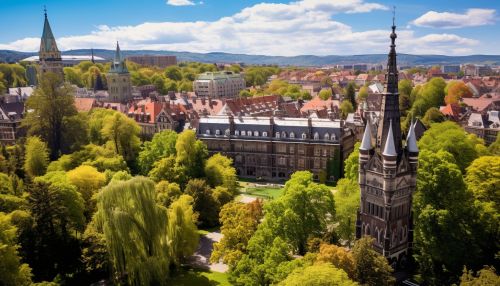University of Bern
History
The University of Bern was officially established in 1834, but its roots can be traced back to the 16th century. The university was initially founded as a theological seminary by reformer Huldrych Zwingli. However, it was not until the 19th century that it was officially recognized as a university. The university has since grown and developed into one of the leading higher education institutions in Switzerland.


Academics
The University of Bern offers a wide range of academic programs in various fields. It is divided into eight faculties: Theology, Law, Medicine, Veterinary Medicine, Humanities, Science, Human Sciences, and Economics and Social Sciences. Each faculty is further divided into various departments that offer specialized courses. The university is known for its interdisciplinary approach to education, encouraging students to explore different fields and disciplines.
Research
The University of Bern is renowned for its research. It is a member of the League of European Research Universities, a consortium of Europe's most prominent and renowned research universities. The university's research is focused on space science, health, sustainability, and precision medicine, among other areas. It is home to several research centers and institutes, including the Albert Einstein Center for Fundamental Physics and the Center for Space and Habitability.
Campus
The University of Bern's main campus is located in the heart of the city of Bern, the capital of Switzerland. The campus is home to a number of historic buildings, including the main building, which dates back to the 19th century. The campus also includes modern facilities such as the university library, the university hospital, and various research facilities.
Student Life
The University of Bern has a vibrant student life. It offers a wide range of extracurricular activities, including sports clubs, cultural societies, and student unions. The university also organizes various events throughout the year, such as the annual "Dies Academicus" celebration and the "Bernese University Sports Days".
Notable Alumni
The University of Bern has produced many notable alumni over the years. Among them are several Nobel laureates, including Albert Einstein, who was a professor at the university when he received the Nobel Prize in Physics in 1921.
